Now the moment has come when we realized that there are no cures for everything, and we began to worry about our immunity and health. The last three years showed that taking care of our health is important, and the hospital and conventional medicine may not save us from modern disease. So, what are the common symptoms of immune system imbalance?

Symptoms that the Immune System is not Doing Well:
- Two or more colds per year. It is important to consider how long they are. The situation with the snot, which disappeared after a couple of days, suggests that everything is fine with the immune system; it did not allow the infection to develop. And another option is when you walk all winter with a cough, snot, recurring sinusitis, or congestion, even without a temperature.
- Various fungal diseases, such as thrush. Thrush is a normal part of the microflora, but when the immune system’s strength decreases, it cannot quickly suppress the growth of fungal infections.
- Manifestation of cold sores. If they appear once a year, this is normal. You need to start worrying if you haven’t had them for ten years, then they suddenly reappeared and began to repeat once every 1-2 months.
A sign of a strong immune system – you can get sick, but you recover very quickly, in 3-5 days, and are back on your feet.

How to Support Immunity?
Building immunity is a long process: you need to get enough sleep, be outside, and work with stress – it kills immunity in a day and reduces its effectiveness at times. But today, everyone wants emergency solutions. Taking vitamins may be annoying, but the vitamins and dietary supplements, plus certain foods, help us get healthier and stronger.
Vitamins and minerals that are especially important for immune function:
Vitamin A is responsible for the integrity of our cells.
Vitamin A is called retinoids – a group of substances consisting of retinol, retinal and retinoic acid. In addition, a person receives a significant part of vitamin A from carotenoids – these are the precursors of vitamin A, which are already converted into it in the body. The most abundant of the carotenoids is β-carotene, 6 mg of which is converted to one 1 mg of vitamin A. On average, people get about 20-30% of vitamin A from carotenoids and 70-80% from retinoids.
Retinoids are found in animal foods – beef offal, salmon, fish oil, milk, eggs, and butter. Orange, red, and green fruits are rich in carotenoids.
Vitamin A is fat-soluble. It is absorbed in the duodenum, and from there, it enters the liver and then into the blood. Excess vitamin A is almost not excreted from the body and accumulates in the liver, both in humans and in animals. Therefore, the product richest in retinoids is beef or chicken liver.
In vitamin supplements or in cosmetics, vitamin A is most often found in the form of β-carotene, palmitate, or retinol acetate. Many preparations contain a combination of retinoids and carotenoids.
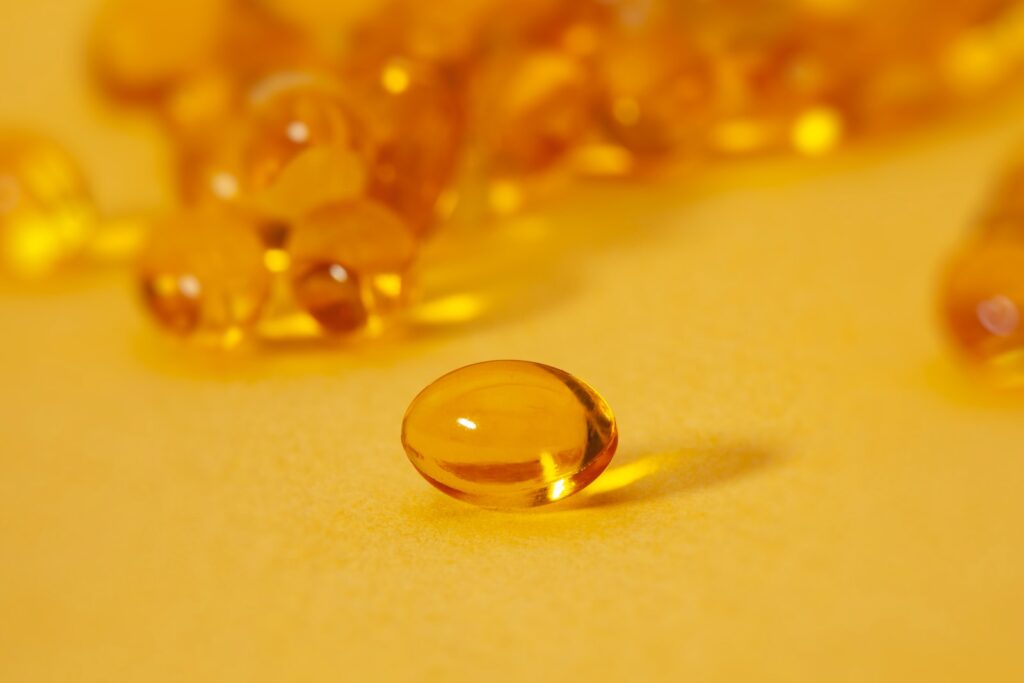
For the function of protecting the immune system, we need exactly vitamin A from the liver of animals, birds, cod, or other fish. Vitamin deficiency is manifested by visual impairment, skin problems, and difficulty in adapting when changing from light to darkness. Vitamin A accumulates, and it is important not to overdose it; the dosage recommended by me is 5000 units per day; if you are pregnant, the prenatal vitamins provide enough Vitamin A, and you should not take extra as it may cause issues with the baby. If you have identified a lack of vitamin A, then you can take it for two months, every day, 2,000 – 5,000 units. Focus on your own signs of deficiency and testing.
How Zinc, Vitamin C, Vitamin A, and Vitamin D Boost the Immune System
The three biofactors zinc, vitamin C, Vitamin A, and vitamin D are important building blocks of our immune system and perform various tasks that mutually support each other. A well-adjusted balance of biofactors helps us fight and recover from colds and other infections naturally so that we can rely on a strong immune system throughout the year.
Vitamin A is important for the immune system because it:
- participates in the synthesis of leukocytes – white blood cells that are responsible for fighting diseases (a sufficient amount of vitamin A in the diet makes leukocytes more tenacious and effective in destroying parasites and tumors);
- participates in the production of antibodies – blood plasma proteins that also fight infections;
- Protects the body from diseases by stimulating the production of new cells of epithelial and mucous tissues; they serve as a natural shield of the body from diseases from the external environment.
Vitamin A is often prescribed as an adjunct in the treatment of many infectious diseases, such as tuberculosis, pneumonia, and malaria.
Why a Strong Immune System Needs Zinc
Zinc is one of the elements with many functions in our body. In addition to the functions that it has in hormonal balance and hair and nail growth, it is actively involved in strengthening the immune system. Getting enough zinc helps boost the immune system so that many infections don’t even have a chance, or at least the risk of exposure is reduced. If you do catch a cold, a well-functioning immune system will be able to fight these viruses more effectively.
Zinc
Unlike other biofactors, our bodies cannot store zinc in one organ. Most of it is found in the cells of many different types of tissues and organs. Our body depends on regular nutrition. The daily recommended intake of zinc for healthy adults is 7-10 mg. Animal products such as beef, oysters, or cheese, in particular, are high in zinc. Plant foods contain less zinc – however, oats and nuts contain 4mg of zinc per 100g.
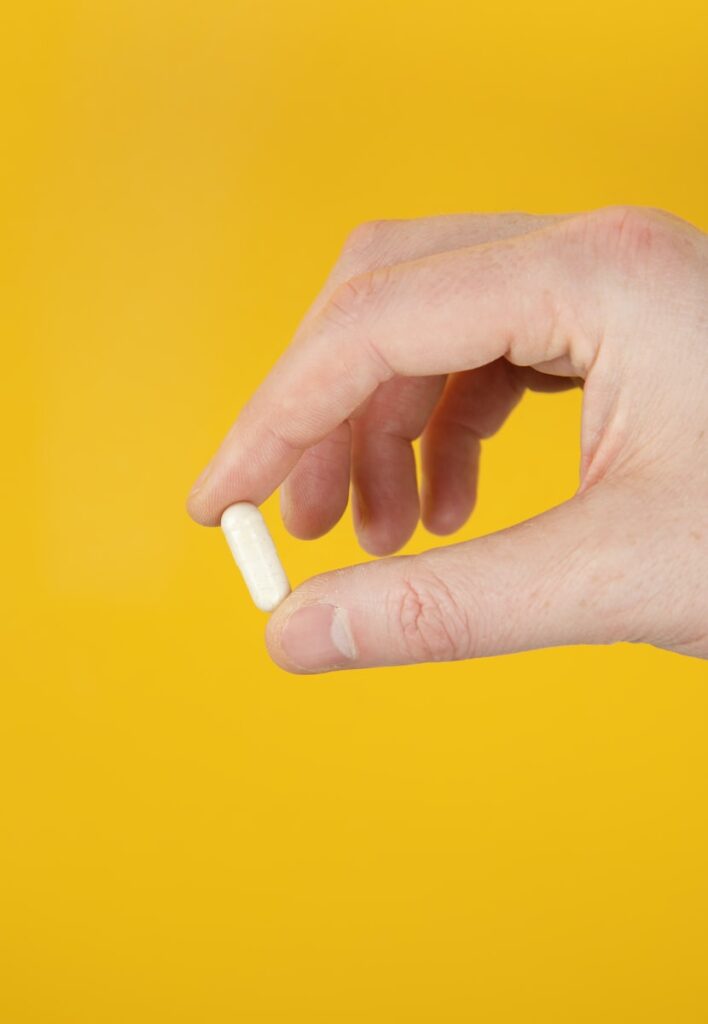
Zinc is needed for the normal functioning of the thymus gland, which produces many substances for the functioning of the immune system. Good for skin, hair loss (due to androgen problems), and type II diabetes, it heals all mucous membranes. If you drink tablets, then a maximum of 30 mg per day. Liquid zinc can easily tell if you’re deficient – the more metallic it tastes, the more deficient you are. Another sign of deficiency is white dots on the nails. Zinc is found in oysters, egg yolks, sesame seeds, cashews, pine nuts, meat, liver (especially pork), and offal.
Vitamin C
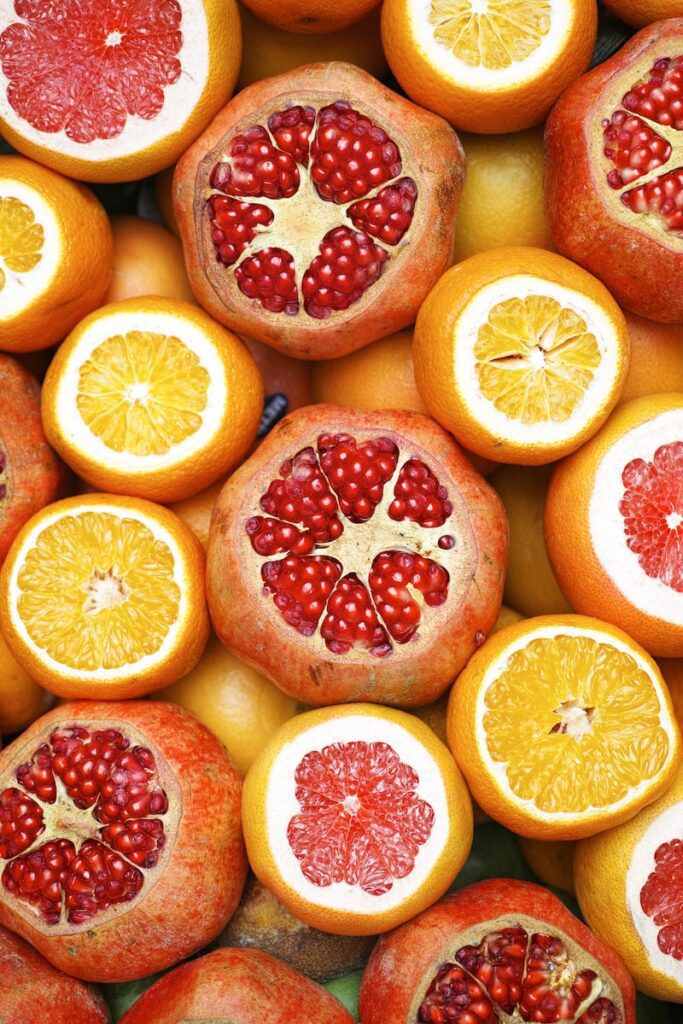
Vitamin C has a protective barrier function. It should be drunk several times a day, a little bit, because it is completely eliminated within 2-4 hours. By the way, vitamin C stimulates the production of collagen and gives it the right shape.
Vitamin C is found in many foods: rose hips, bell peppers, spinach, black and red currants (can be frozen), cabbage of all kinds, especially white cabbage, lemons, and all citrus fruits.
Vitamin C helps boost the immune system
Vitamin C is one of the most important vitamins. It performs numerous functions in our body. One of them is strengthening the immune system. It stimulates the formation of leukocytes responsible for the elimination of microbes, thereby accelerating the body’s defense reactions. In addition, vitamin C is a strong antioxidant, as it reduces oxidative stress. This means that it binds damaging free radicals in the blood, regenerates the body’s own substances that have antioxidant effects, and reduces unnecessary cell stress. Vitamin C is used in all of these reactions within our body – which is why our need for vitamin C increases when we are sick. Vitamin C makes a decisive contribution to reducing the risk of colds.
How You Boost Your Body’s Defenses With Vitamin C
Humans cannot produce vitamin C themselves and must obtain it through their diet. Citrus fruits contain a lot of vitamin C, as well as onions, bell peppers or broccoli. So when you stuff your kids’ Christmas stockings, in addition to delicious chocolate, think vitamin C-rich tangerines and oranges!
Vitamin C with bioflavonoids is better absorbed.
Roles of Vitamin D in Your Immune System
Vitamin D is essential not only for bone health but also for a strong immune system. In various processes, it activates our immune system and performs key functions in management. Vitamin D protects the body from misguided attacks by its own immune system, thus reducing the risk of autoimmune disease and chronic inflammation. If you suffer from a vitamin D deficiency, your T cells and other antibodies are not activated enough, and the microbes in your blood and tissues are not detected very well and cannot be eliminated. When our supply of vitamin D is slowly depleted at the end of the year, it weakens our immune system, and we become more prone to get sick and getting the flu.
Vitamin D: a sun boost to boost the immune system
Vitamin D is one of the rare biofactors that we can produce and store ourselves. For this reason, vitamin D is not a vitamin but a hormone. After being converted in the liver, it is stored in our adipose tissue. When a vitamin is needed by the immune system, it is activated and put into action by the immune system. However, various protective barriers can prevent our skin from getting enough UV to trigger vitamin D synthesis. Sunscreen protects us very well, but UV is blocked. Moreover, during the winter months, solar radiation is very weak for several months, so UV radiation in northern latitudes does not reach the Earth. Thus, our own production of vitamin D practically ceases between autumn and spring. Vitamin D3 can be obtained through food – albeit in small amounts – for example, in fish and fish oil.

So, especially during the cool and cloudy winter months, consider a balanced diet and an adequate supply of the vital biofactors vitamin D3, zinc, and vitamin C. And your immune system will reward you!
Immune Supporting Herbs
Echinacea for immunity: useful properties
An important property of echinacea is the ability to strengthen the immune system and support the body in the fight against pathogens. The plant reduces the likelihood of developing acute respiratory infections by 58% and the duration of colds by 1.4 days, according to research by employees of the University of Connecticut School of Pharmacy.

Echinacea drops as prophylaxis so as not to get infected. Tea from licorice root (licorice) – a very good effect on the adrenal glands. When we have a lot of inflammatory processes in our body, the immune system uses cortisol to suppress them. This puts a lot of stress on the adrenal glands.
Echinacea helps to increase immunity of both types: both that which is genetically passed down from generation to generation and that which appears during life and constantly “learns” to recognize new threats.
Dried (Fresh) Medicinal Mushrooms: Shiitake, Reishi, and Chaga Medicinal Mushrooms.
Long before our era, people began to use the medicinal properties of mushrooms. These eukaryotic organisms served as food, were used for religious purposes, were used as medicinal products, and even many spiritual rituals were performed using mushrooms.
First of all, you should remember about immunostimulation.
The therapeutic effect of mushrooms is explained by the fact that they contain bioactive polysaccharides called beta-glucans. They stimulate the immune system, which protects the body from external negative influences.
beta-glucans do not affect the immune system, overexciting it, but rather optimize immune effects without causing the risk of autoimmune reactions. Mushrooms have a number of medicinal effects:
- contribute to the activation of the immune system;
- have antimicrobial, antiseptic, anti-inflammatory, and antitumor effects;
- maintains the health of the circulatory system and the tone of the whole body;
- improve the functioning of the brain and nervous system;
- improve human performance;
- participate in the regulation of cholesterol and sugar levels in plasma;
- positively affect the formation of beneficial microflora in the intestine;
- slow down the aging of the body due to antioxidant characteristics;
- optimize liver function;
- have similar effects with adaptogens.
The course of taking beneficial mushrooms is recommended to take place in autumn and spring when the human body is more susceptible to a decrease in the abilities of the immune system.
To normalize the protective functions of the body, you should take a mushroom course lasting up to one month. If necessary, repeat the reception to take a break between courses. It is also allowed to reduce or increase the duration of admission based on the individual characteristics of the person and the purpose of the application.
Due to their medicinal properties, mushrooms have found wide popularity in the manufacture of various products. They are part of drugs that support human immunity, and are in products that are designed to improve brain function; they are used as an assistant for detoxification and cleansing of the body. On the market, you can often also find products with mushrooms to improve sports performance and anti-aging.
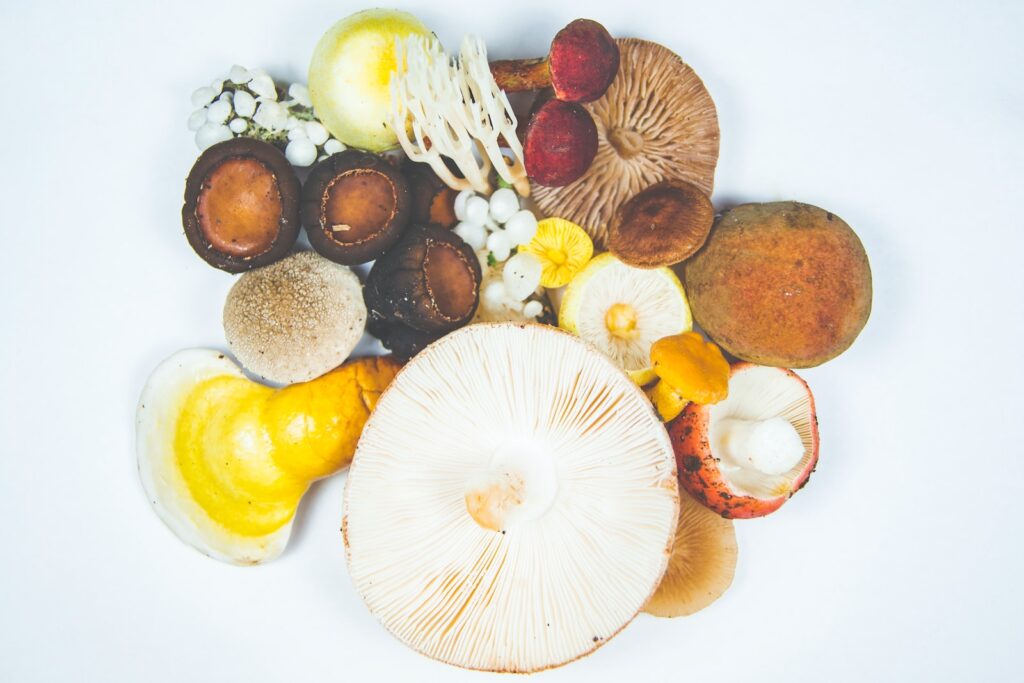
Allicin.
Garlic is one of the main remedies for fighting colds in folk medicine. And although there are sometimes very controversial practices, the benefits of this plant have been repeatedly proven by researchers around the world. The active substance allicin is responsible for the healing power of garlic. We will talk about it and its benefits for the body below. The antibacterial substance in the composition of garlic in capsules – in case of pneumonia or cough has already begun to develop. But it does not work on viruses. For prevention, it is useless.
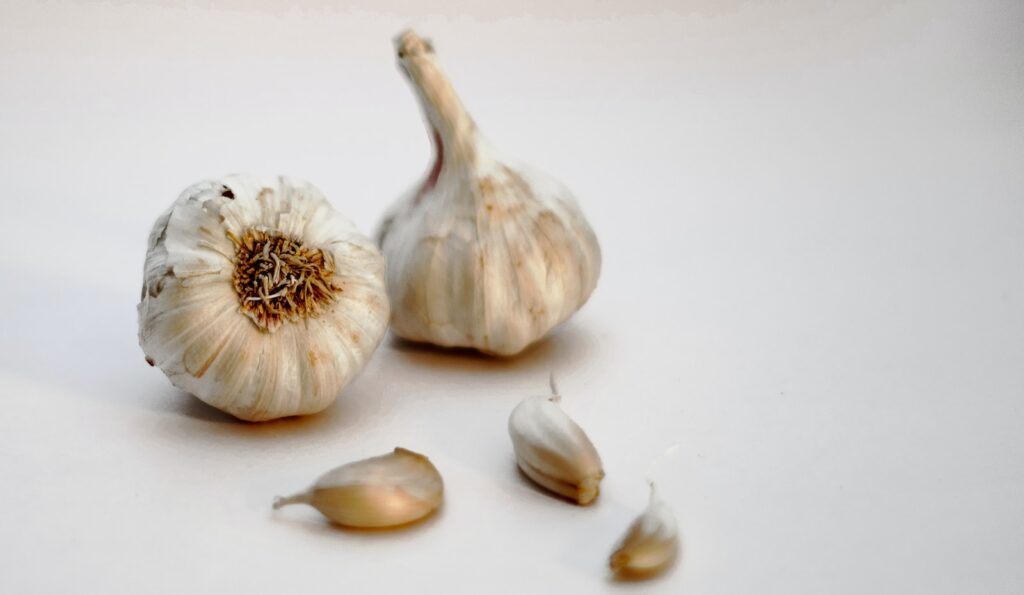
Allicin has anti-inflammatory and antibacterial properties, which makes it an excellent assistant in the fight against viruses and in strengthening the immune system. It destroys pathogenic bacteria and activates the body’s natural defenses, which prevents us from becoming weak and sick.
In addition to its immunostimulating properties, allicin reduces the load on the heart muscle and blood vessels and strengthens them. In addition, it helps control blood cholesterol levels, prevents blockage and calcification of blood vessels, and the formation of plaques. The active substance has a more than positive effect on the nervous system. Allicin promotes the formation of new neural connections, increases concentration and attention, and, according to recent studies, even plays a role in the prevention of Alzheimer’s disease.
It is for these reasons that you should add garlic to your salads and sandwiches. Remember that allicin is almost completely destroyed by heat treatment, so it can be added to hot dishes solely for taste and aroma. And if you don’t like the specific bitterness but still want to get a portion of allicin, choose garlic oil in capsules. This popular supplement has long gained a lot of fans among healthy lifestyle adherents, as it helps to strengthen the immune system even for those who do not like garlic at all.
